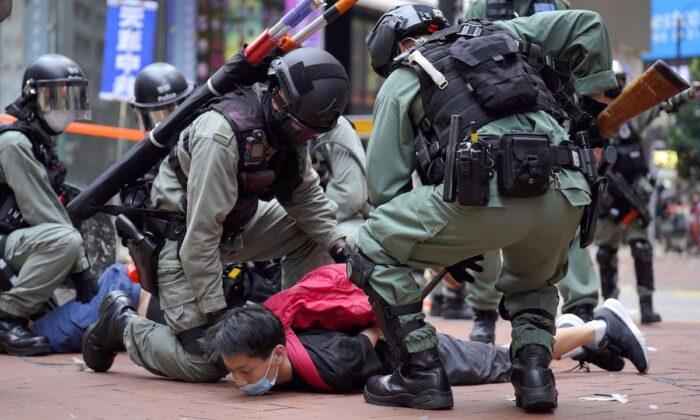BEIJING—The top decision-making body of China’s rubber-stamp legislature will review a draft of national security legislation for Hong Kong during a session in Beijing that began on Thursday, state-media mouthpiece official Xinhua news agency reported.
The draft legislation specifies the definition of four crimes: separatist activity, state subversion, terrorist activity, and collusion with foreign forces, Xinhua reported.
It also sets out punishments for those crimes, it said.
The law is expected to bring about the most profound change to the former British colony’s way of life since it returned to Chinese rule in 1997, as critics fear it will crush wide-ranging freedoms in Hong Kong denied to people in mainland China that are seen as key to its success as a global financial centre. It is expected to allow mainland security agents to be based in Hong Kong for the first time.
Authorities in Beijing and Hong Kong have dismissed fears the law will curb freedoms and say it will only target a minority of “troublemakers” who pose a threat to national security from the regime’s point of view. Communist China’s legal system is notorious for its absense of rule of law because it is overseen by the politics of the communist party at every level.
The legislation has triggered some of the strongest exchanges between officials in Beijing and Washington, with U.S. Secretary of State Mike Pompeo calling it a “death knell” for Hong Kong’s freedoms.
Pompeo met China’s top diplomat, Yang Jiechi, in Hawaii on Wednesday amid a deep deterioration of ties between the strategic rivals, their first face-to-face meeting since last year.
The Chinese foreign ministry said in a statement Yang told Pompeo that the United States needed to respect China’s positions and halt interference in issues such as Hong Kong, Taiwan and the Xinjiang region and work to repair bilateral relations.
Pompeo stressed “the need for fully-reciprocal dealings between the two nations across commercial, security, and diplomatic interactions”, U.S. State Department spokeswoman Morgan Ortagus said in a statement.
The Hong Kong security legislation is the biggest step yet by Beijing in a concerted campaign to assert its authority over the city and its 7.5 million people after months of sometimes violent anti-government protests triggered by the pro-Beijing government’s attempt to pass a controversial extradition bill that included China.
The legislation was not listed on an earlier agenda of the session of the National People’s Congress Standing Committee.





